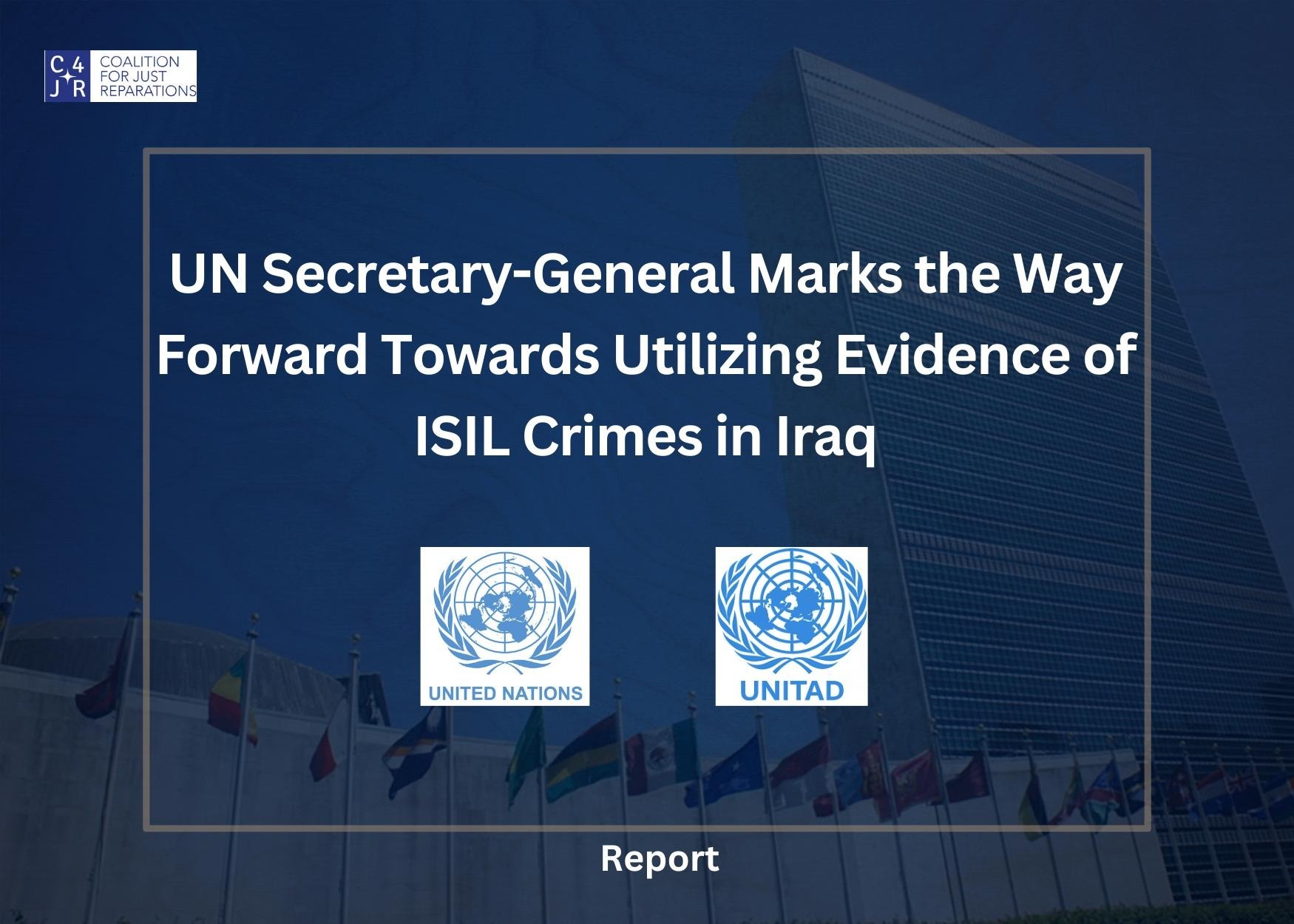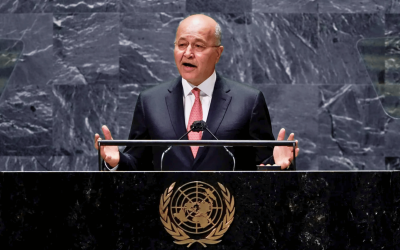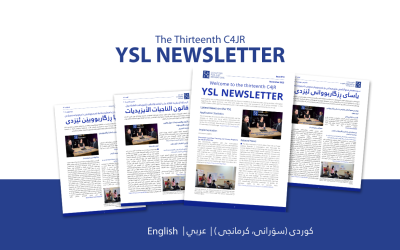ERBIL — The Coalition for Just Reparations (C4JR), an alliance of Iraqi NGOs calling for comprehensive reparations for survivors of atrocity crimes perpetrated during the ISIL conflict in Iraq, welcomes the UN Secretary General (UNSG) Report on the implementation of UNSC Resolution 2697 (2023), submitted on January 15, 2024, available to access here.
The UNSG Report provides guidelines on the sharing of evidence collected by UNITAD, and annexes a separate note by the Head of UNITAD, which sets out more concretely what it can share with Iraq and how. To obtain evidence that UNITAD has collected from survivors and witnesses of ISIL atrocities, Iraq must meet the requirements laid out in international law, UN best practices and set up an internal system for the proper handling of such evidence. In addition, to be able to share evidence with any state including Iraq, UNITAD must obtain informed consent from information providers. Finally, the UNSG calls for a UN repository to ensure the effective use of such evidence in Iraq and elsewhere.
UNITAD has emphasized that in the sharing of evidence collected, it is bound by the requirement that the use of evidence is consistent with fundamental human rights to a fair trial and in-line with UN policies and best practice against the sharing of evidence for use in criminal proceedings in which the death penalty could be imposed or carried out. In addition, UNITAD can ONLY share information or evidence if the relevant information provider consents.
This being said, UNITAD differentiated between evidence collected from the Iraqi authorities and other collected evidence. Whereas the former can be shared with Iraq straightforwardly, the latter (mostly evidence collected from witnesses, CSOs and third states) would require meeting the above criteria as well as establishing an evidence-sharing process to ensure proper storage, capacity building and conditions for use.
In order to avoid archiving the collected evidence (thus rendering them inactive!), the UN Secretary-General recommended, in paragraph 33, “that the [United Nations] Secretariat establish a repository of evidence so as to ensure that highly confidential and sensitive information remains protected and that the evidence is preserved and managed in accordance with international criminal law standards, and could thereby be of assistance in responding to the calls for continued accountability from Iraq and other Member States, survivors and civil society organizations.”
This recommendation is, by and large, aligned with the perspectives of Iraqi CSOs and survivor groups, co-ordinated by C4JR, as referenced in paragraph 21:
“Civil society organizations and survivors’ representatives have conveyed their concerns regarding the future efforts to ensure accountability for ISIL (Da’esh) perpetrators upon the conclusion of the Investigative Team’s mandate and the future access to the evidence collected by the Investigative Team. They strongly expressed the view that the evidence should remain accessible in the future in a manner that would allow its use for purposes of ensuring accountability. They also referred to the importance of avoiding the re-traumatization of survivors, in particular children, women and victims of conflict-related sexual violence, who already provided their testimonies to UNITAD. It was also recalled that the evidence collected by UNITAD must be preserved and stored in a manner that ensures the security of the evidence, full respect for the consent of information providers and in accordance with United Nations policies. A variety of suggestions were conveyed, ranging from an enhanced archiving facility within the United Nations, with sufficient resources to respond to future requests to access the evidence, to the establishment of a hybrid tribunal in Iraq for the international crimes committed by ISIL (Da’esh). Reference was also made to the possibility of establishing an independent entity (a residual mechanism), mandated to store and preserve the evidence of the Investigative Team and to support accountability processes in Iraq and in other jurisdictions through the sharing of information. It was suggested that such an entity could be further mandated to re ceive and store new evidence and/or to continue to analyse the information already collected by the Investigative Team.”
“Since Iraq’s request to receive all the evidence collected by UNITAD, there has been a lot of anxiety and even despair among survivors and families of victims,” says Natia Navrouzov, International Lawyer and Legal Advocacy Director at Yazda. “Many feared that what they had entrusted to an UN body might be misused, leaked and politicized by their own government. The strong message sent by the UNSG and UNITAD that nothing can be shared without informed consent might bring them some relief. The other takeaway of the report is that if Iraq wants the evidence, they need to do things right and abide by UN standards. And for that, there is no shortcut: they need to give UNITAD more time and work hand in hand not only until September 2024 but beyond.”
The full C4JR report on Iraqi civil society and survivors’ views will be available soon.
For more information, contact: Alannah Travers: [email protected], or Saber Saeed: [email protected]



